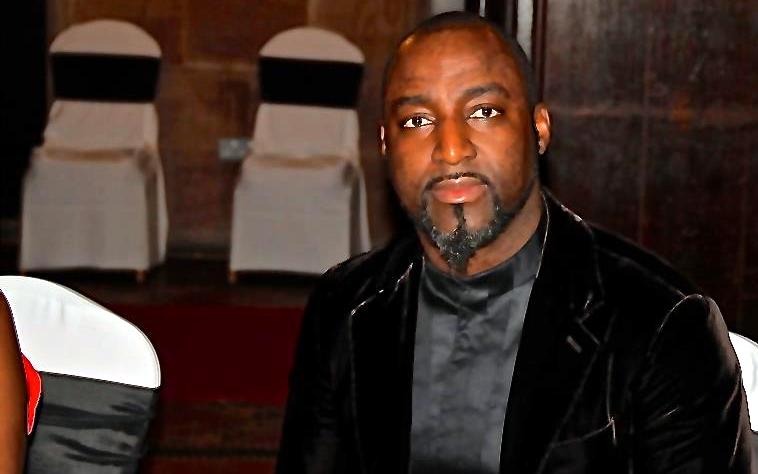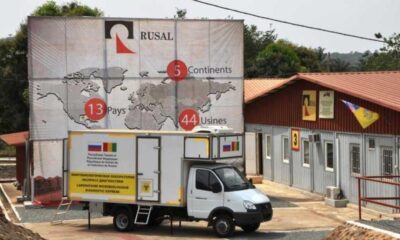Political Issues
Kairos: the New Nigeria -By Adewale Ajadi


Adewale Ajadi
It is Kairos time here in Nigeria. Kairos means an appointed time – a decisive or ordained moment. Everyone, including the enemies of a cohesive Nigerian state, is in all manners of emotive expressions about our unlikely country. People see a crisis of nationhood and a country tearing apart at its fault lines. They see the effectiveness of a stay-at-home in the East as sign of ethnic cohesion for a new state, ignoring signs that a significant number stayed at home in compliance, in fear of conflict or even confrontation between different perspectives. Almost like clockwork, the reactionary elements in our society ignore the wisdom of reflection. They give ultimatums that play into the worst fears of many fence sitters in our wider populace. This is the same country where General Abacha ruled without an end in sight; the same one where PDP thought it would rule forever, and where we would be dissolved by the 2015 elections. Whether imagined or real, the end of Nigeria is often the first resort of the commentators. I wish people would accept that we are forever in a liminal state, where the country is on the long difficult journey into nationhood. Though this initially appears to be a down moment in our collective history, I think it is a moment to be uplifted.
We are fortunate because the frustration expressed by our fellow citizens is also a powerful sign of our progress towards sincerity and honesty, no matter how painful that communication might be. Whether the focus of ire is the entitlement over the proceeds of oil, resentment due to the Biafran experience (even for those who are a generation removed from this), or the seemingly opportunistic talk of restructuring, we are talking about real concerns. You cannot have any healthy group development without a decent storm from time to time. There will be those who say we should have passed this phase a long time ago, but who said these things are linear? The fact that one of our major ethnic groups harbours deep pain that appears to be intergenerational is quite important to listen to and understand. It does not mean we all should agree, but we must know about what and why we disagree. We must also consider that others also feel victimised, both historically and currently. No one should have the exclusive right to a perpetual victimhood status. To truly maximise our diversity, we must become capable of agreeing to disagree, without being disagreeable. We are blessed by this new set of events to take another shot at developing this competence.
More telling is the fact that the risk of disintegration has woken up a significant number of apathetic and complacent people to what we will be losing in an increasingly interdependent world. We are a country of many incredible, yet simply ignored things. We have a dietary spectrum that has soups and stews that would run into hundreds if not thousands, as well as remedies and cures to myriad ailments. In our hundreds of cultures, there are over 500 languages, though quite a few are dying without documentation. Those cultures have costumes, customs and religions that the world is yet to fully discover and celebrate, which would be a casualty of arbitrary dislocation that would only serve an entitled few. ‘We are Nigerian’ has become an active, rather than a passive, remark. More people are actively standing that I can ever recall. All this in a world where fear is driving many countries towards xenophobic and ethnocentric preservations.
We also now have the space to question the assumptions being made by the three major ethnic groups that ignore over 360 others in the scramble to complete and compete about whose turn it must be to take control of the affairs of the nation, or to have the lion share of offices in government. Ignoring the many numerical minorities or even intimidating majority of co-travellers towards nationhood, who might have worked in a world where information was not so readily available, yet we are here now. Many different voices are standing clearly for their variation of the Nigeria they want. It is likely that we will have over 100 million of those – so be it. This current discussion is a way of asking ‘why not?’
It is Kairos that the president was not at the centre of this storm, because of his background as a military man who was active during our civil war. The assumption is that his generation of federal officers see the country as a ‘spoil of war’. The unfortunate fact is that his pronouncements and positions are often perceived from an ethnic lens, which is irrational. It is a form of projection by those who give a tribal slant to all his positions, despite all the evidence to the contrary. The relationship between him and his vice president has created an unprecedented team that is building a foundation of how we would start to ensure that most of us move beyond being indigenes to being citizens. In practical terms, they are ensuring that the commonwealth is not automatically used for private purposes – restoring the likelihood that if you are caught, you will be held to account.
They are diversifying the economy towards a space where productivity drives opportunity instead of just natural resources, while more effectively defending the territorial integrity of the country. More telling is the deftness with which the acting president is doing something often left to the securitate in the country: speaking for Nigeria. His speech on the “New Nigeria” is a call to arms, and a shot in the arm for those of us who see our life’s purpose as building a legacy of nationhood. We are committed to giving our children and posterity this African nation that does not bow or carry a bowl in the community of nations. A nation that speaks for our continent with credibility and force, accomplished from sacrifice and struggle. It is Kairos that this stone that is often rejected and maligned – Nigeria – will be the cornerstone of an African century.
In my life, Nigerian authority figures rarely ever make a case for our country from a position of sincerity. Instead, they often pander. They find a populist position, if they are politicians, or they assert a security position to those who would only talk of a restructure without any understanding of the dynamics. Anyone with basic knowledge of any complex system knows that it is the dynamics that should drive a process for finding a structure that is fit for purpose. We often confuse the parts with the whole, but the forest is not the same as the trees. Nigeria is the forest, with not just the trees of ethnicity as vegetation but also different animals and insects that form many aspects of its people, geography and characteristics. In a world defined by globalisation, we need not devolve towards what is comfortable, and eventually disastrous. We must lift ourselves up to find our better angels so that we can be competitive and collaborative. One of the most cohesive countries in Africa is Somalia. Need I say more?
The acting president not only makes the case for these better angels, but he also identifies the possibilities we are overlooking, and the power of what we have become despite ourselves. We need only to look at the pre-eminence of this country in Africa, and the spectrum of individual excellence it generates when we rise to use our differences for good to engage with what he is saying. The most effective economy in Nigeria is Lagos because it is home to the best talents and capacities from all over the country. I am somewhat jealous because Ibadan, where my people are from, used to be one of the centres of excellence of diversity. Everyone came to school in and engaged the many firsts that the city represented. Then state and indigene assertions sent many of the great minds away. It is not wrong to say that we are not even a regional player any longer. The city, even though still large, has declined in population, especially among younger people. Diversity is the life blood of innovation, excellence and viability.
For me, the New Nigeria is a dream for a time like this. A boost from being just a country towards nationhood. I desire a nation that claims its agricultural possibilities as the life blood for the predicted third largest population in the world by 2050. I see an agricultural superpower that not only ensures food security, but contributes uniquely to nutritional care of the world with the rest of Africa as partners. This capacity will be built on productivity and merit, with social and scientific innovation, as well as in exploiting the digital understanding of its very young populace. I dream of leapfrogging with artificial intelligence as supportive of this digital understanding, so that our social systems are grounded on benefiting our multitudes, not just a few.
I am sure that to get to this Nigeria, we will have to become mature enough to go beyond zoning and other turn-by-turn tools. We must have meritorious selection processes, knowing that no matter your ethnicity, you will be working for an inclusive economy. We must stop the illusion that you can steal public goods for a secure personal, familial or communal future. Yes, we will proudly share and discuss our ethnicity, because it would be our opportunity to educate and engage in discovery. The trend towards inter-ethnic marriages will continue apace. Citizenship will be founded on a social contract of paying taxes for your government, and holding them to account for performance.
When John F Kennedy talked about landing someone on the moon, it was far from a tangible reality. It was, however, an idea whose time had come. The acting president’s “New Nigeria” speech is not only timely. It is Kairos.
Adewale Ajadi, a lawyer, creative consultant and leadership expert, is author of Omoluwabi 2.0: A Code of Transformation in 21st Century Nigeria.


















